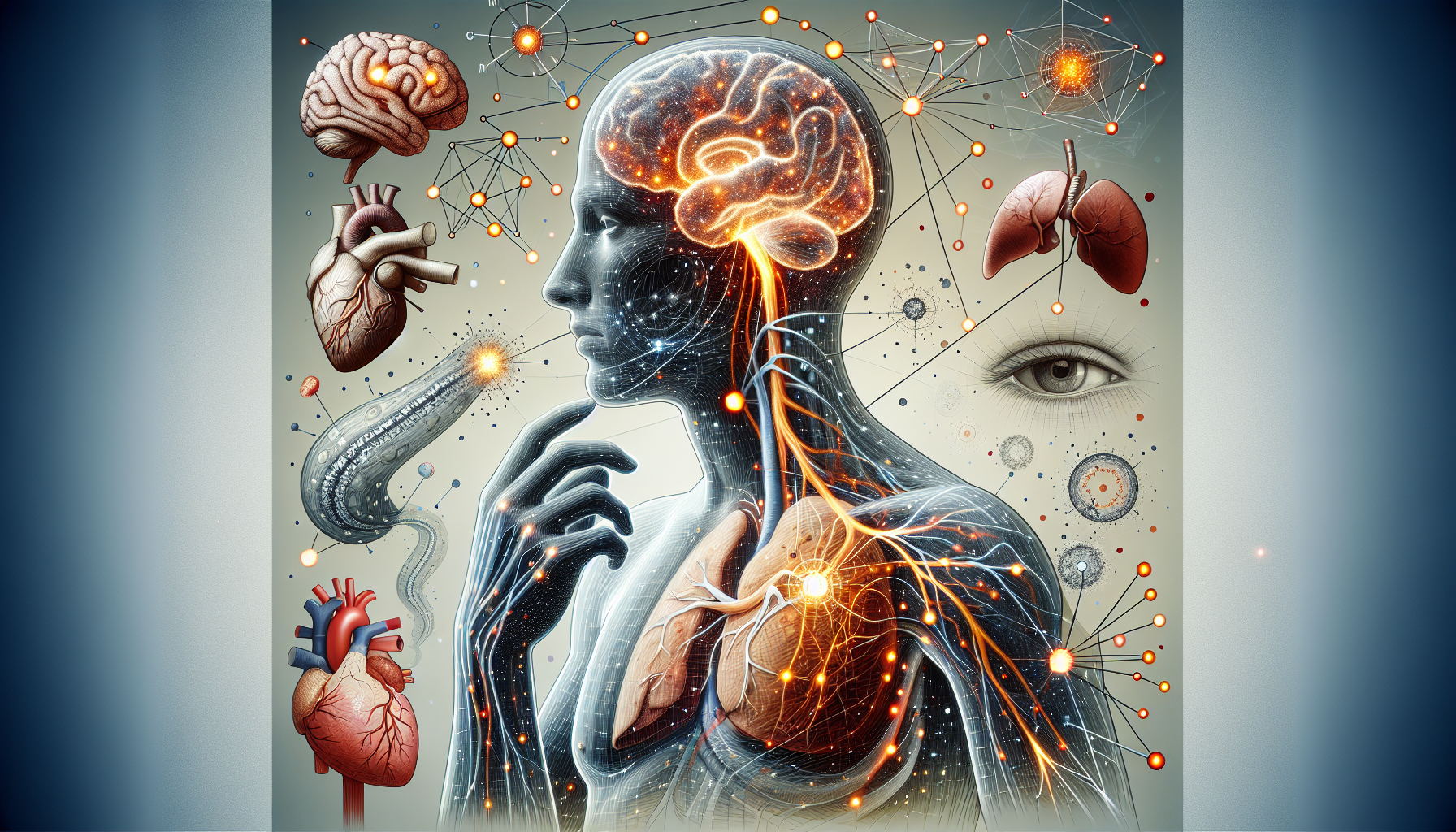Chronic pain is a pervasive issue that affects millions of individuals worldwide, presenting not only a physical challenge but also having profound implications for cognitive health and brain function. The experience of pain over extended periods can lead to significant changes in the brain, influencing mood, memory, and overall mental well-being.
The Brain-Pain Connection
The brain is the central hub for interpreting and processing the sensation of pain. When we experience pain, signals are sent through nerve fibers to the brain, where they are perceived and can influence a plethora of neural processes. In the context of chronic pain, this constant signaling can alter brain structure and function in various ways.
Structural Changes in the Brain
Research has demonstrated that individuals with chronic pain can exhibit changes in brain volume, particularly a reduction in gray matter. Gray matter is essential for processing information and controlling movement, and its reduction is linked with diminished cognitive abilities.
The Role of Neurotransmitters
Chronic pain can disrupt the balance of neurotransmitters – chemicals responsible for transmitting messages between neurons. For instance, serotonin and norepinephrine, which are involved in pain modulation and mood regulation, can be significantly impacted by chronic pain conditions, potentially leading to mood disorders and cognitive impairment.
Cognitive Implications
The cognitive load of managing persistent pain can lead to what is commonly referred to as "brain fog", characterized by issues with memory, attention, and executive function. Chronic pain sufferers often experience difficulties in concentrating and may show a decreased ability in performing mental tasks.
Pain’s Influence on Cognitive Health
Memory and Learning
Chronic pain can impair the hippocampus, a brain region integral to learning and memory formation. This impairment can lead to difficulties in acquiring new knowledge and recalling information, significantly impacting daily life and productivity.
Executive Function
The prefrontal cortex, critical for decision-making and problem-solving, can be compromised in those with chronic pain, leading to challenges in planning, organizing, and multitasking.
Emotional Impact
The constant stress of dealing with pain can affect the amygdala, the brain’s emotion center, increasing the risk of anxiety and depression. This emotional distress can further exacerbate cognitive issues, creating a challenging cycle of pain and mental health struggles.
Managing Chronic Pain for Better Brain Health
Effective management of chronic pain is crucial not only for improving physical well-being but also for protecting and enhancing brain function. Here are strategies that can help mitigate the cognitive effects of chronic pain:
Integrative Pain Management
Incorporating a variety of pain management techniques, such as medication, physical therapy, and psychological approaches, can provide comprehensive relief and help maintain cognitive function. For more information on integrative approaches to pain management, consider reading Integrative Approaches to Brain Health and Pain Management.
Mindfulness and Meditation
Mindfulness meditation has been shown to reduce the perception of pain and the associated stress, which can improve cognitive functions affected by chronic pain. The article Mindfulness Meditation Practices for Cognitive Resilience explores this topic in greater depth.
Cognitive Behavioral Therapy (CBT)
CBT can help modify the emotional and behavioral responses to pain, potentially reducing its impact on the brain. Techniques learned through CBT can improve coping strategies and cognitive flexibility.
Physical Exercise
Engaging in regular physical activity can boost endorphins, the body’s natural painkillers, and promote neurogenesis, the creation of new brain cells. The article The Benefits of Aerobic Exercise on Cognitive Clarity and Focus discusses the cognitive benefits of exercise.
Nutrition
A diet rich in anti-inflammatory foods and omega-3 fatty acids can help reduce pain and support brain health. For more insights into the role of diet in cognitive function, the article Strategies for Enhancing Brain Health Through Diet is a valuable resource.
External Resources for Further Reading
To expand on the points made in this article, here are several niche and specific external resources:
- A study on gray matter abnormalities in chronic pain published by The Journal of Neuroscience.
- The National Center for Complementary and Integrative Health provides resources on alternative pain management techniques.
- An overview of neuroplastic changes in chronic pain from the National Institutes of Health.
- An article discussing the impact of nutrition on inflammation and pain from the journal Nutrients.
- Insights into pain’s effects on cognitive function from the journal Frontiers in Human Neuroscience.
Conclusion
Chronic pain is not solely a physical ailment; it has far-reaching effects on brain health and cognitive function. Understanding and addressing these effects is crucial for enhancing quality of life and mental well-being. Through a combination of medical treatment, lifestyle changes, and psychological support, individuals can better manage their pain and safeguard their cognitive health.



